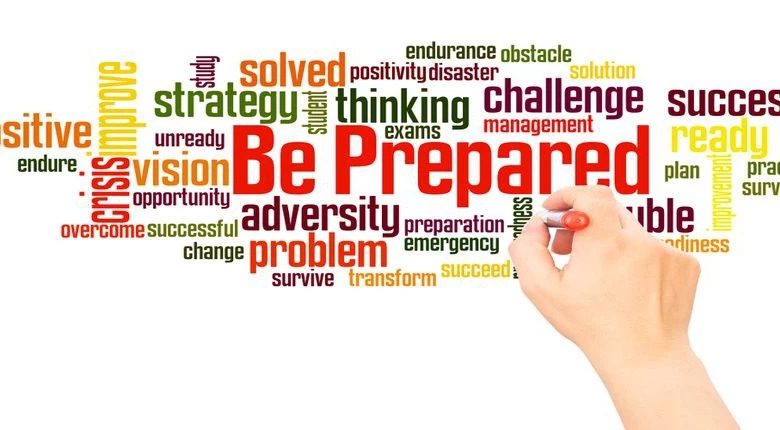CBSE Class 12 Physics Board Exam Preparation Tips

The study of Physics is both thrilling and captivating due to its practical applications in real-life scenarios. While students may initially find the theoretical and numerical aspects demanding and time-consuming, once they grasp the underlying concepts, they will appreciate the learning experience.
Many students experience difficulty with Class 12 Physics, largely due to its extensive syllabus and complex derivations in the NCERT textbook. However, with proper planning and focused attention from the outset of the academic term, students can gain a strong understanding of the subject and become engaged in it. An organised and well-structured study plan is essential for success. To aid students, we have outlined preparation tips for the CBSE Class 12 Physics Board Exam to help them create a comprehensive study plan. Before delving into the tips, here are some crucial points to keep in mind while preparing for the physics exam.
Examine these critical topics and derivations included in the CBSE Class 12 Physics Board Exam. These crucial review topics and straightforward tips will assist students in preparing for the exams efficiently. If students have missed a few chapters during last-minute revisions, these simple tips and tricks will help them cover the missed material swiftly.
Please visit for more information: Publix Passport
Class 12 Physics Chapter Wise Syllabus 2023
CBSE has released the syllabus of Class 12 for the academic year 2023. The theoretical section comprises 70 marks, while the evaluation scheme accounts for 30 marks. Class 12 Physics chapter-wise syllabus comprises a total of nine units and fourteen chapters. Students should carefully review each aspect of the syllabus and thoroughly understand the fundamental concepts from NCERT textbooks and supplementary materials. This will aid them in future studies and exams, such as NEET, JEE Main, BITSAT, JEE Advanced and state board entrance exams.
| Chapter 1 – Electronic Charges and Field | Chapter 2 – Electrostatic Potential and Capacitance | Chapter 3 – Current Electricity | Chapter 4 – Moving Charges and Magnetism | Chapter 5 – Magnetism and Matter |
| Chapter 6 – Electromagnetic Induction | Chapter 7 – Alternating Current | Chapter 8 – Electromagnetic Waves | Chapter 9 – Ray Optics and Optical Instruments | Chapter 10 – Wave Optics |
| Chapter 11 – Dual Nature of Radiation and Matter | Chapter 12 – Atoms | Chapter 13: Nuclei | Chapter 14: Semiconductor Electronics: Materials, Devices and Simple Circuits | Chapter 15: Communication Systems |
Class 12 Physics Exam Preparation Plan
It is advisable for students to start preparing for their board exams at the beginning of the new academic year to reinforce their conceptual knowledge. Some students may neglect their studies early on, leading to insufficient development of theoretical understanding and decreased opportunities for obtaining good grades. The Class 12 GPA holds a significant influence over a student’s future prospects. Therefore, it is imperative for each student to establish a daily routine that prioritises practice and study.
- The Physics Board Exam is based strictly on the NCERT textbook, which encompasses the entire Class 12 Physics syllabus. Therefore, students are advised to study exclusively from the NCERT Class 12 Physics book. It is crucial for students to have a quick recall of important formulas in order to answer numerical questions efficiently.
- Students should aim to practise each derivation at least three times to ensure they can complete the exam in a timely manner.
- The Physics exam includes a compulsory question that requires the creation of a diagram or graph. To achieve full marks on this question, students must carefully observe the essential elements of the diagram.
- In order to prepare themselves for the actual examination, students should practise solving the previous year’s Class 12 Physics question papers within a 3-hour time frame.
Analysis of Mark Distribution of Important Chapters and Topic-Wise Strategy
Students who struggle with Mathematics and numerical problem-solving should prioritise studying the theory-based chapters, such as Electromagnetic Waves, Communication, the Dual Nature of Matter and Radiation, Wave Optics, Atoms and Nuclei. These chapters are purely theoretical and offer an opportunity for students to earn higher scores. Additionally, they should focus on studying Devices such as Cyclotrons, Galvanometers, Transformers, Potentiometers, AC Generators and Meter Bridges, which are part of the theoretical section.
Students who enjoy solving numerical problems should concentrate on the first part of the Physics textbook, which includes chapters like Electric Fields and Charge, Capacitance and Electrostatic Potential, Current Electricity, Moving Charges and Magnetism, among others. They can also prioritise studying chapters based on the number of marks allocated to them.
It is recommended that students write down and memorise formulas for each chapter for effective revision. Students should start by understanding the fundamentals of each principle and learning how to apply it with the corresponding derivation. After comprehending the question, they can then refer to the solutions for confirmation.
Exam Oriented Preparation
Revision plays a crucial role in preparation for the Physics exam, as the subject involves a large number of formulas and derivations. After completing each chapter, it’s advisable to review it immediately before moving on to the next one. This will strengthen the understanding of the subject as the topics are interconnected. During revision, it’s important for students to review the syllabus one more time to ensure that no topics have been overlooked.
One effective way to gauge your readiness for the CBSE Class 12 Physics Board Exam is by solving various sample and previous years’ question papers. After completing each paper, take the time to assess your performance. Review your answers and identify areas where mistakes were made, and think about how they can be corrected in the future. To improve their performance on the CBSE Class 12 Physics board exams, students should address any areas where they have weaknesses. If they encounter any confusion or uncertainty, they should seek clarification from their teacher.
Extensive Mock Tests and Practice
The adage, “Practice makes perfect”, is relevant to students too. The more practice students put in, the greater their chances of earning high marks in their Physics exams. They should aim to solve a minimum of six to seven past years’ CBSE Class 12 Physics Important Question papers. It’s important for students to familiarise themselves with the examination pattern and the types of questions that appear on the Physics paper. During the exam, students should use the time given for reading the question paper wisely by deciding the order in which they will attempt the questions. It is recommended that students start with the 5-point questions first.

